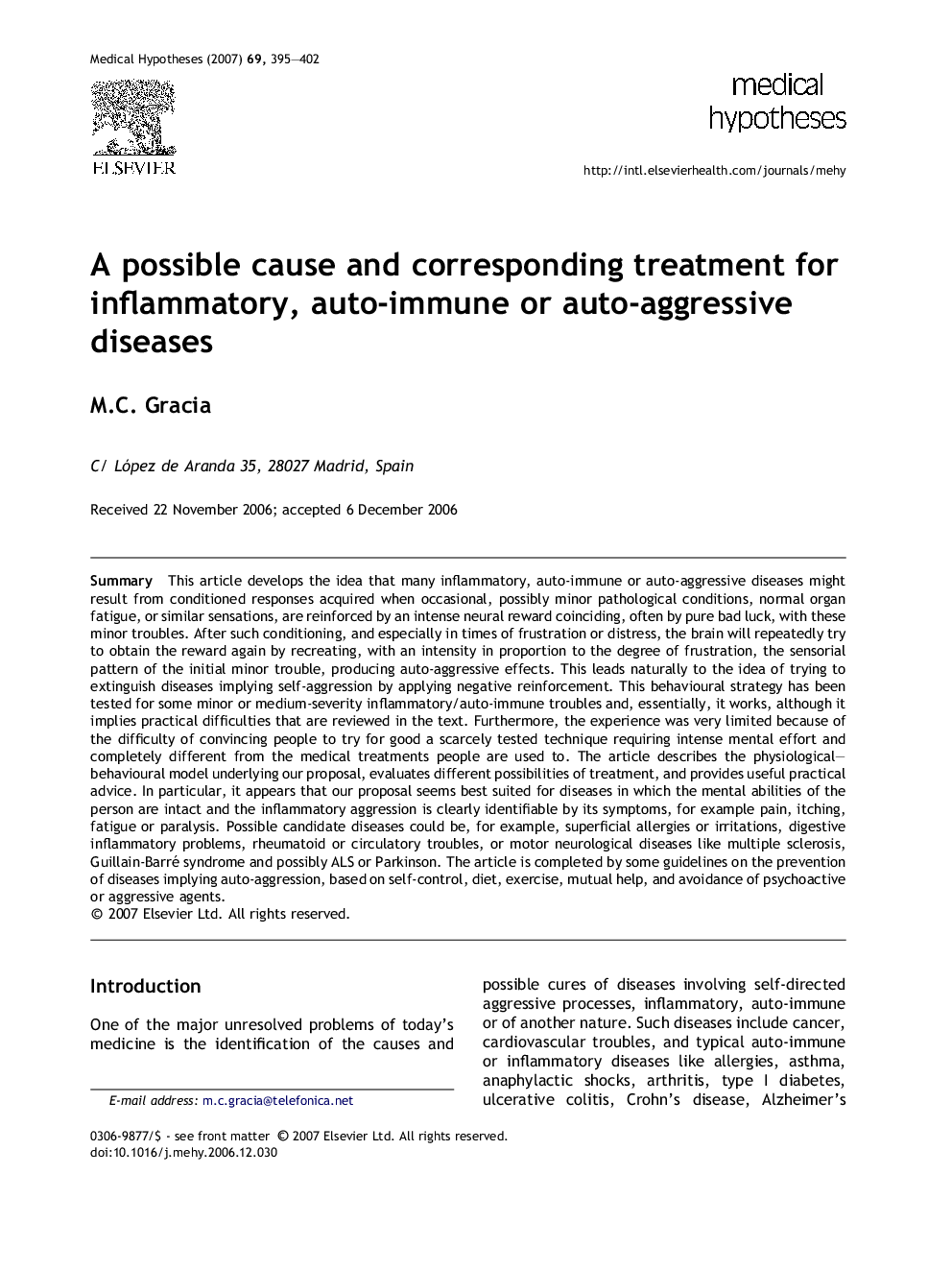| Article ID | Journal | Published Year | Pages | File Type |
|---|---|---|---|---|
| 2492094 | Medical Hypotheses | 2007 | 8 Pages |
SummaryThis article develops the idea that many inflammatory, auto-immune or auto-aggressive diseases might result from conditioned responses acquired when occasional, possibly minor pathological conditions, normal organ fatigue, or similar sensations, are reinforced by an intense neural reward coinciding, often by pure bad luck, with these minor troubles. After such conditioning, and especially in times of frustration or distress, the brain will repeatedly try to obtain the reward again by recreating, with an intensity in proportion to the degree of frustration, the sensorial pattern of the initial minor trouble, producing auto-aggressive effects. This leads naturally to the idea of trying to extinguish diseases implying self-aggression by applying negative reinforcement. This behavioural strategy has been tested for some minor or medium-severity inflammatory/auto-immune troubles and, essentially, it works, although it implies practical difficulties that are reviewed in the text. Furthermore, the experience was very limited because of the difficulty of convincing people to try for good a scarcely tested technique requiring intense mental effort and completely different from the medical treatments people are used to. The article describes the physiological–behavioural model underlying our proposal, evaluates different possibilities of treatment, and provides useful practical advice. In particular, it appears that our proposal seems best suited for diseases in which the mental abilities of the person are intact and the inflammatory aggression is clearly identifiable by its symptoms, for example pain, itching, fatigue or paralysis. Possible candidate diseases could be, for example, superficial allergies or irritations, digestive inflammatory problems, rheumatoid or circulatory troubles, or motor neurological diseases like multiple sclerosis, Guillain-Barré syndrome and possibly ALS or Parkinson. The article is completed by some guidelines on the prevention of diseases implying auto-aggression, based on self-control, diet, exercise, mutual help, and avoidance of psychoactive or aggressive agents.
